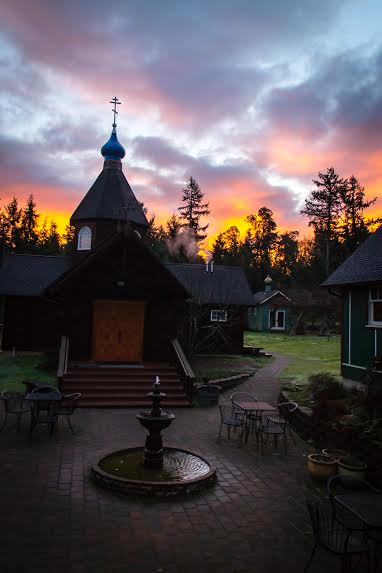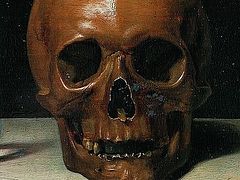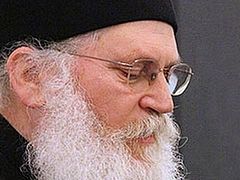Source: The Morning Offering
February 22, 2016

One of the most rewarding and challenging aspects of the priesthood is comforting people in their darkest moments of sorrow. Do not be mistaken, and think that priests, monks and chaplains are exempt from the pain of those whom they try to comfort, or that we have magical words that somehow ease the pain or bring order to the chaos of grief. Platitudes are useless in dark days of mourning. Our loved one may very well be “in a better place,” but it is oddly of little comfort to say those words. In a powerful witness of human behavior, Christ “does not say, ‘Well, now he is in heaven, everything is well; he is separated from this difficult and tormented life.’ Christ does not say all those things we do in our pathetic and uncomforting attempts to console. In fact he says nothing—he weeps.”
In grieving, we follow in the example of Jesus, who wept at the grave of his friend Lazarus. And as humans, we all, at one time or another, will suffer the loss of a loved one, and experience the process of grieving. The mystery of death itself will impact every one of us, either with the loss of someone we love, or in the loss of our own life. As a priestmonk of the Russian Orthodox Church, I am comfortable with this mystery, as all Christians should be. Death can be a mystery precisely because the triumph over death is not a mystery. As the great Russian Orthodox theologian Alexander Schmemann once wrote, “in essence, Christianity is not concerned with coming to terms with death, but rather with the victory over it.” In the light of everlasting life, in the name of Jesus Christ, the dreadful threat and dark mystery that is death is transformed into a happy and victorious event for the believer, and “Death is swallowed up in victory.” (1 Cor. 15:54)
So mourning is an ancient ritual, one in which Jesus participated. For all of us, all people, death is a common element of humanity, the common trait that we share, and the common enemy of our loved ones. And like grief, victory over death binds people together in a larger, more powerful community, the community that is found in the Christian faith. People accuse Christians of being members of a “death cult,” obsessed with a dying savior and focused on the afterlife to the exclusion of the present; but they are wrong. Christianity does not deny life, Christianity affirms life. Christianity affirms life even in death, because for Christians, death does not remove the relationship that exists. When death takes a loved one from us, it also provides us with the opportunity to live with the hope of one day joining him. And a life with hope is a good life.
So for us, death is the beginning of the true life that also awaits us beyond the grave, if indeed we have begun to live it here. Christ, “the resurrection and the life,” (John 11:25) transformed death. Christ assumed human flesh, Christ was crucified, resurrected, ascended to heaven and waits for us there, and Christ ushers us into new life both now and after our death. Therefore, even as death exposes our frailty and our grief, death does not reveal our finiteness; instead it reveals our infiniteness, our eternity. To this end, the Christian does not ponder the mystery of death in a way that is paralyzing, negative and apathetic, but in a way that is productive, positive and dynamic.
God, to whom we have entrusted our soul, is a good and perfect God. This God will do what is right with our child, what is just with our brother, and what is honorable with our friend. There is no saying, no claim, no scripture that will give us peace in our immediate loss, or even calm our troubled souls; but we can find comfort and peace in God who is present with us, and in us and through us in the intimacy of death. And we can say with all confidence and assurance, our own death will not be final, but only the beginning of an eternal life, one that will be far better than we could ever expect in this present life. Our own death will open wide the gates of the Eternal Kingdom, where we will forever worship the Holy Trinity, and participate in the ongoing Heavenly Banquet, the eternal Liturgy.
With love in Christ,
Abbot Tryphon



